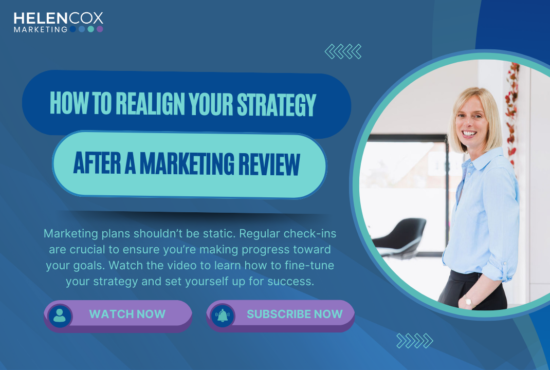How to future-proof your law firm: strategic marketing trends for 2025
The legal industry is undergoing a transformation. Technology continues to evolve, clients are expecting more, and competition is fiercer than ever. For managing partners, the challenge isn’t just maintaining today’s success—it’s about preparing for tomorrow. To stay ahead of the curve and attract high-value clients, law firms must embrace forward-thinking marketing strategies that align with these changes.
In 2025, three trends stand out as pivotal for future-proofing your law firm: AI-powered marketing, data-driven decision-making, and thought leadership. Let’s take a look into how each trend can increase your firm’s profile and ensure its long-term success.
AI-powered marketing: work smarter, not harder
Artificial intelligence is no longer just a futuristic concept—it’s an essential tool in modern marketing. For law firms, AI can streamline operations, enhance client engagement, and improve the efficiency of marketing activities. What if you were able to personalise client communications, predict client needs, or automate time-consuming tasks like scheduling social media posts (lets face it this is never fun!) or segmenting email lists. AI makes all this possible.
AI can also provide deep insights into client behaviour. For example, tools like chatbots can collect data from client interactions, giving you a clearer picture of what potential clients are looking for. Similarly, AI-driven analytics platforms can identify patterns in your website traffic, helping you understand which practice areas or content types are driving inquiries.
Adopting AI doesn’t mean overhauling everything at once. Start small by integrating AI into specific areas of your marketing, such as email marketing or client segmentation. As you see results, you can expand its use across more functions. The goal isn’t to replace the human touch but to free up your team to focus on strategic, high-impact activities that drive growth. Invest in AI now to help you make savings later down the line.
Data-driven strategies: decisions backed by insight
In an era where data is abundant, firms that know how to use it effectively will gain a significant edge. Relying on intuition or guesswork to shape marketing strategies is no longer viable. Instead, data offers a way to measure success, identify opportunities, and refine your approach for maximum impact.
For managing partners, understanding key metrics is critical. Metrics like lead-to-client conversion rates, client acquisition costs, and website performance are more than just numbers—they’re indicators of how well your marketing is aligning with your business goals. For example, if you notice that traffic to your employment law pages is high, but inquiries are low, it may signal a need to revise your content or streamline your contact process.
The key is to ensure you’re collecting the right data and interpreting it effectively. This might mean partnering with your marketing team or hiring a specialist to create dashboards that track the metrics most relevant to your firm’s objectives. Regularly reviewing these insights will allow you to make informed decisions, allocate resources wisely, and pivot strategies when needed. Remember not to get caught up in data overload – choose the right metrics that work for you.
Thought leadership: building trust and authority
Thought leadership is one of the most effective ways to establish your firm as a trusted advisor rather than just another service provider. By sharing valuable insights and expertise, you position your firm as the go-to resource for solving complex legal challenges.
Thought leadership can take many forms. Writing articles for industry publications, hosting webinars, and speaking at conferences are great ways to demonstrate your firm’s knowledge and capabilities. For example, a partner specialising in intellectual property could write about emerging trends in AI and copyright law, showcasing your firm’s expertise in a cutting-edge area.
Creating thought leadership content is only half the battle; promoting it effectively is just as important. Use your website, social media platforms, and email newsletters to share these insights with your audience. Repurpose longer pieces into shorter formats, such as LinkedIn posts or infographics, to maximize their reach and appeal.
Investing in thought leadership not only strengthens your brand but also attracts high-value clients who are seeking experts in their field. Clients want to work with firms that understand their industry’s nuances and can provide actionable solutions to their challenges. By positioning your firm as a thought leader, you’re giving clients a reason to choose you over competitors.
Why future-proofing matters
The legal sector is at a crossroads. Firms that stick to traditional marketing methods risk falling behind as competitors embrace innovation. Future-proofing your marketing strategy ensures your firm remains competitive, relevant, and profitable.
For managing partners, this isn’t just about marketing—it’s about positioning your firm for long-term success. AI can enhance efficiency and personalisation, data-driven strategies ensure smarter decision-making, and thought leadership builds credibility and trust. Together, these trends form the foundation of a resilient, modern marketing strategy.
The time to act is now. Assess your current marketing efforts, identify gaps, and start integrating these trends into your strategy. Whether you take small steps or embrace a comprehensive overhaul, future-proofing your marketing will set your firm apart in a crowded and competitive market.
Need help?
If you would like help with your marketing, then bringing on a marketing consultant with a fresh pair of eyes can make all the difference. I work with B2B businesses and professional service firms in London, Kent, UK and Europe, as well as specialising as a Legal Marketing Consultant. Please get in touch or book a free 30-minute consultation.
Related Services
Related blogs
The Ultimate Marketing Plan Checklist for Busy Law Firms and Accountancy Practices
The importance of a strong marketing strategy for professional services firms




